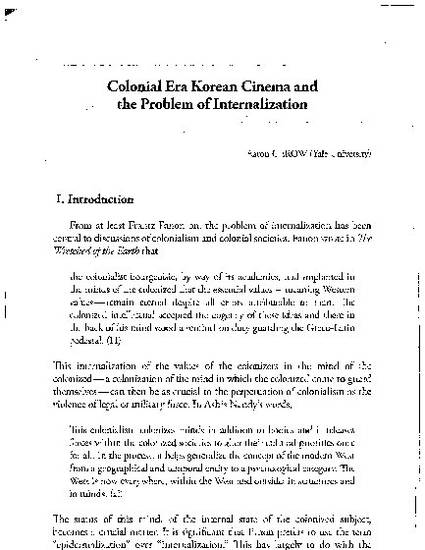
Article
Colonial Era Korean Cinema and the Problem of Internalization
Trans-Humanities
(2015)
Abstract
This paper analyzes several films produced in Korea during the era of its colonization by Japan that pose interesting questions about the problem of internalization, or colonization of the mind. While on the one hand, these works can seem to present examples of Korean characters quite literally internalizing the voices or visions of Japanese authority, they can also problematize the assumption that there is a distinct subject with an established “inside” open to absorbing such commands. This is further complicated, I will argue, by the fact that the cinema of the Japanese metropole was itself often contradictory, despite and sometimes because of its place in a colonial empire. These Korean films offer multiple examples of complex subjectivities crisscrossed by split subjectivities and intersubjective relations that render it difficult to clearly demarcate “internal” and “external.” This paper will be one step in an effort to use close stylistic and film analysis to consider the questions of colonial film and cultural colonization on the level of the cinematic text.
Keywords
- Korean cinema,
- colonial cinema,
- colonialism,
- Japanese cinema
Disciplines
Publication Date
2015
Citation Information
Aaron Gerow. "Colonial Era Korean Cinema and the Problem of Internalization" Trans-Humanities Vol. 8 Iss. 1 (2015) p. 27 - 46 Available at: http://works.bepress.com/aarongerow/47/